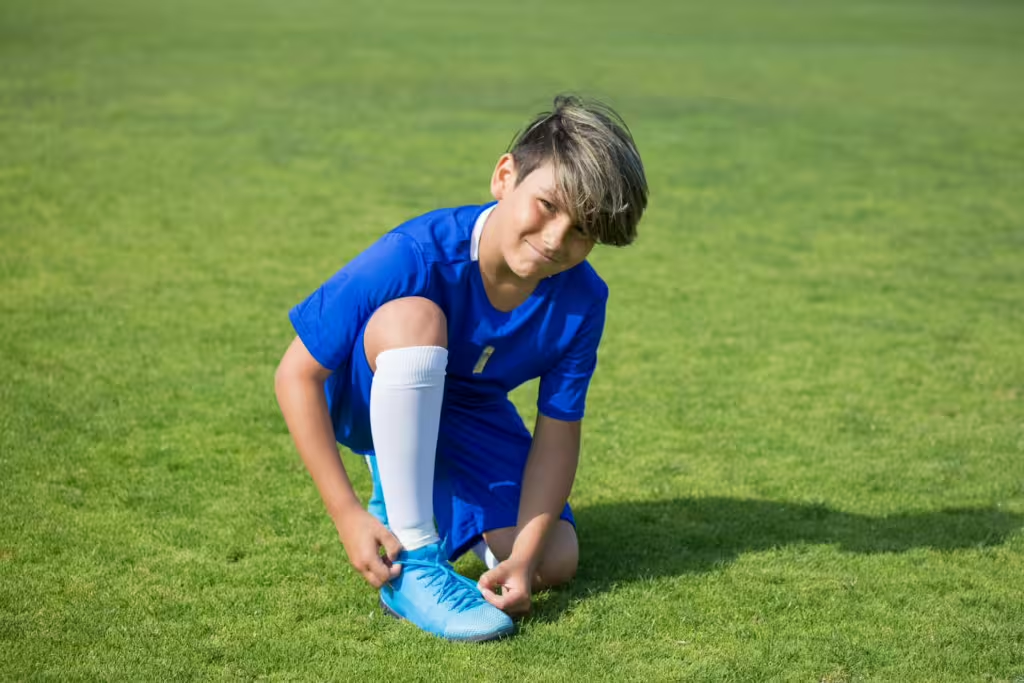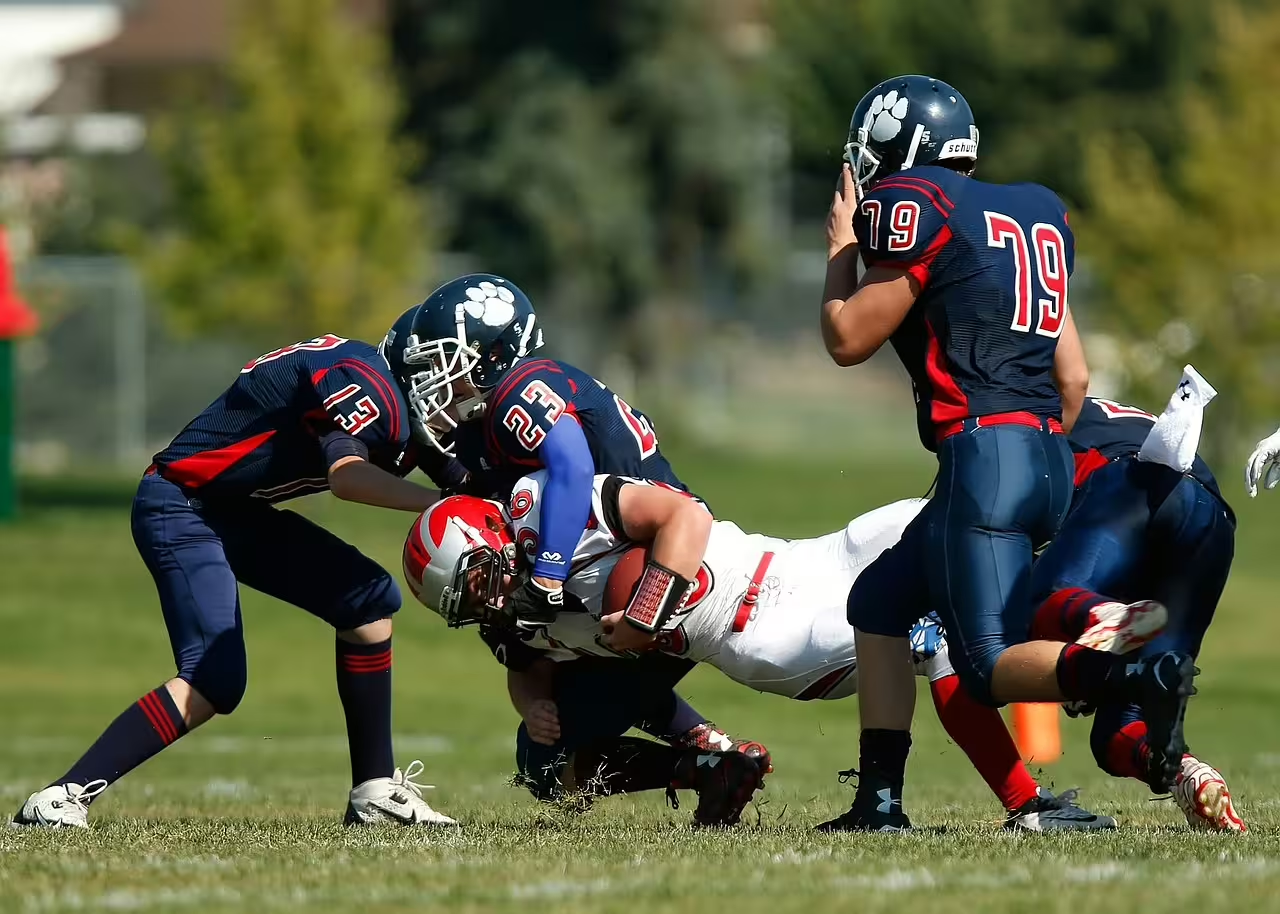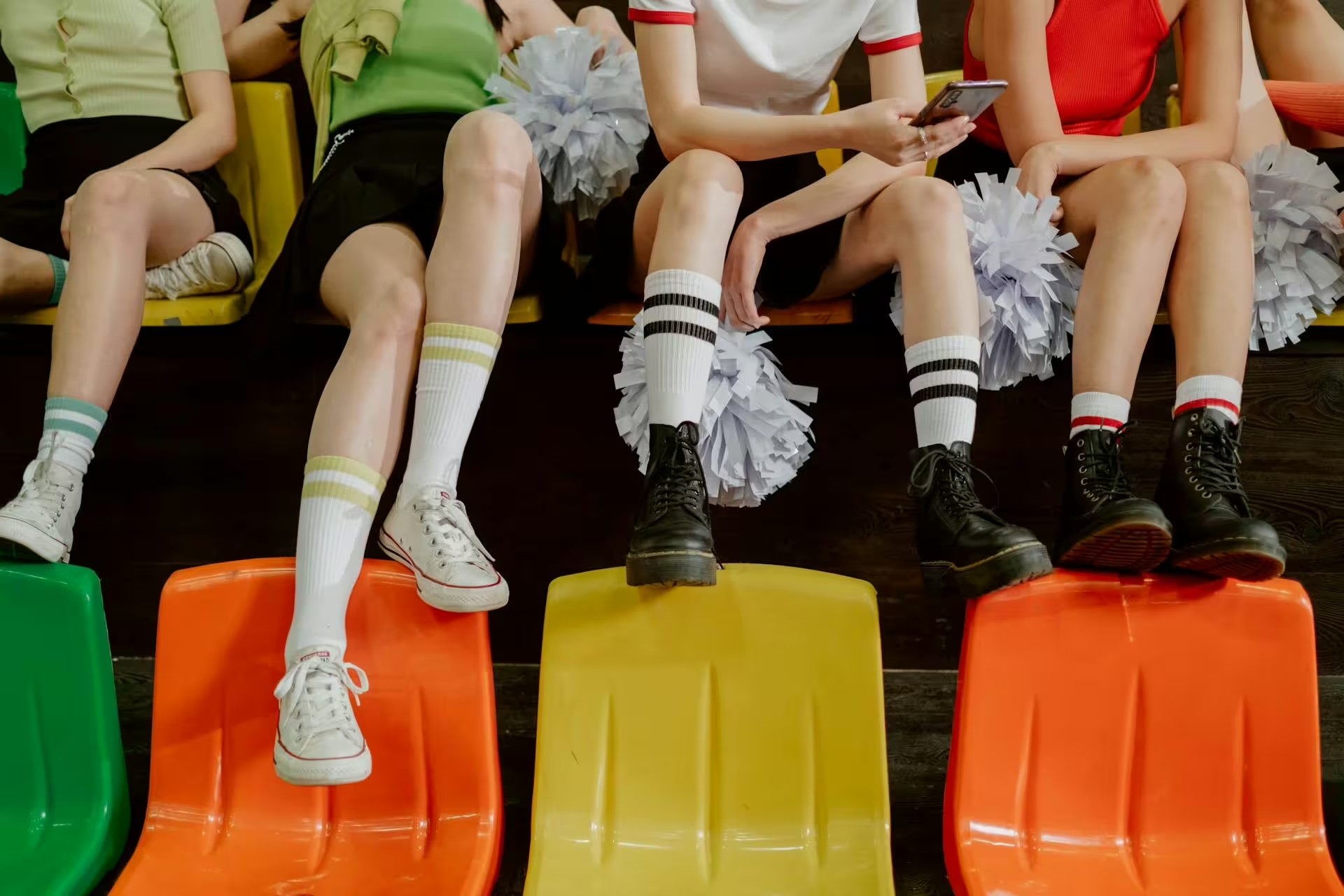Youth sports can be a very competitive scene, even for younger children. As parents, we often find ourselves swept up in the mania as well. We get hyped as our child starts to see success or we engage with other, perhaps more competitive parents and start to share in their sensibilities. Heck, we might even begin to lose sight of the most important facet of youth sports; the fun. It isn’t always parents either, in today’s highly competitive world of youth sports, it’s easy for the children themselves to get swept up in the excitement, success, and pressure to perform.
Parents have their own lives, their own time constraints, work and money concerns, to focus on every day. So we sometimes don’t pay attention to the nitty-gritty aspects of our kids’ sports journeys. As a result, we may not notice how year-round practices, weekend tournaments, and specialized training programs might be putting more pressure on our kids than they are capable of overcoming.
The truth is, young athletes often face demanding schedules that can leave little room for rest and recovery; and that’s where parents need to step in. And certainly, dedication and hard work are both crucial aspects for athletic development, rest is equally important. Without proper downtime, kids can burnout, sustain serious energy, or develop a highly negative relationship with sports.
In this article, we will educate parents about the importance of getting rest in youth sports. We will explain its purpose as well as the consequences that can occur when children aren’t properly rejuvenated. Finally, we will discuss a plethora of methodologies parents can utilize to help their rest and recover, mentally, emotionally, and physically, while still staying focused in youth sports.
Why Rest Matters in Youth Sports
When we talk about rest we’re not just about taking a break from physical activity, we’re talking about a true rest, one that repairs the body, the mind, and the spirit. Rest is an essential component of athletic performance and overall well-being. When we rest, we allow time for our body to repair itself, for the mind to decompress, and for the spirit to remain joyful and engaged with the activities that wore us out in the first place. For young athletes rest, sleep specifically, is an even more critical aspect of their lives, simply because their minds and bodies are still developing.
Physical Recovery
Children’s muscles experience the same stress and micro-tears that ours do when we engage in rigorous, physical activity. Though these are common in all sports, they still need time to heal. This is why we suggest rest days for young athletes. Having practice every day denies the body the time it needs for muscles to recover and grow stronger. Rest days also prevent overuse injuries that can greatly derail a budding athlete’s progress.
Overtraining of any kind can also lead to other negative effects in the long term. Tired athletes might experience chronic fatigue, decreased performance, or sustain a serious injury such as stress fractures, tendinitis, or shin splints. Getting adequate rest supports the development of motor skills and coordination in growing brains, and recovery time allows young bodies to assimilate new skills, movement patterns, and training adaptations.

Mental Health
As adults, many of us fail to remember the intense psychological pressure that constant training and competition had on our youthful selves. Indeed, if any of us had any sort of mental trauma associated with our youth sports experience, we very likely pushed it down or forgot about it. Some readers might even be thinking, “it couldn’t have been all that bad. I was in varsity youth sports and I came out of it ok.” What parents need to remember is that, we’ve learned a lot since those days; and we know a lot more about mental health than our own parents ever did.
For instance, we now understand so much more about the toll that psychological pressure can have on children. The type or mental stressors competitive sports can put on a child can lead to mental exhaustion and sometimes the simplest answer lies in them just getting some time to rest and recuperate. Getting enough rest can greatly help to reduce a child’s stress, enabling them to approach their sport with better enthusiasm and focus.
Without adequate rest, children may end up experiencing frustration and a lack of motivation, but more importantly, they could develop more serious psychological issues like depression or anxiety. At the same time, having downtime provides young athletes with an opportunity to engage in their other interests and hobbies; and they should have some of these. Kids need to have a well-rounded sense of self, something that goes far beyond the playing field. This type of mental rejuvenation is essential for maintaining a positive outlook on sports and in life, in general, Moreover, it will help kids develop resilience and a more balanced perspective that will benefit them long after the season ends.
Long-Term Development
Rest goes a long way in supporting long-term athletic growth in kids. Not only can it prevent burnout, it can help foster a lifelong love of physical activity. Overtraining is particularly sticky when your child is at a young age. At this stage, stressing them out or overworking them can lead to early dropouts from sports. The child simply learns to associate sports with anxiety, worry, or disappointment rather than enjoyment. This is why parents and coaches need to incorporate rest into their training regimen; doing so will help ensure that your kids develop sustainably, allowing their physical, mental, and emotional capacities to grow with them in harmony.
Signs of Burnout in Young Athletes
We talk a lot about burnout in this article, and for good reason. Burnout is a state of physical and emotional exhaustion that occurs when the rigorous demands of a sport outweigh the child’s ability to cope. Fortunately, recognizing the signs of burnout is pretty easy if parents know what to look for. The most common signs can be found in the list below and knowing them can help parents and coaches intervene before they lead to more serious consequences.
Common Signs:
- Chronic Fatigue: If your kid shows persistent tiredness even after a good night’s sleep, they could be burning out. This can indicate that the child’s body has not had enough time to recover from physical and/or mental stress.
- Decreased Performance: If your kid starts to falter in sports, showing a noticeable decline in skills, speed, or endurance, they might be burning out. Kids who burnout may struggle to keep up with their peers or feel frustrated by their inability to perform at their usual level.
- Mood Changes: If your child shows increased signs of irritability, mood swings, or withdrawal from social activities, they could be experiencing burnout. Big emotional shifts like these can often signal that the child is overwhelmed by the pressures of their sport.
- Lack of Motivation: If your kid doesn’t want to play or even go to practice, they might be in the midst of a burnout. Any loss of interest or excitement about practices, games, or competitions could be an indicator that something is amiss.
- Physical Complaints: If your child is getting frequent injuries, complaining of muscle soreness, or of unexplained aches and pains, they may be feeling some burnout. These symptoms often indicate overuse or insufficient recovery time after physically pushing themselves.
- Poor Academic Performance: If other areas of your child’s life are being affected, such as their schoolwork or concentration, the culprit could be burnout. Bear in mind that any undue fatigue, stress, or an overly demanding schedule can leave your child less time for mental clarity or actually, physically studying.
Remember, if you notice any of these signs, it’s crucial to address the situation promptly before any long-term damage is done. Recognizing and responding to burnout early can help restore balance to a child’s overall sports experience.
Tips for Preventing Overtraining

As parents, we are well-placed to prevent overtraining and burnout in our kids. We have the power to ensure that our kid are getting adequate rest. This, of course, requires a proactive approach from parents and coaches, but also from the kids themselves; who should take some interest in their own success. Here are some practical strategies to help young athletes maintain balance:
Prioritize Rest Days
Parents should schedule at least one or two rest days each week where their child does not have to participate in organized sports or any degree of intense physical activity. Even if your kid says they can do it and wants to play, it might be time to put your foot down and pump the brakes. It’s best to use these days for light activities like walking, stretching, or simply relaxing and playing some video games; heck, they can even be sports video games, just as long as the child can rest up.
Days like these provide kids’ bodies with an opportunity to heal, recharge energy levels, and process the physical and mental demands of their often rigorous training schedule. By incorporating these days into your kid’s regular routine, parents can help maintain their child’s enthusiasm and avoid feelings of burnout or excessive tiredness.
Limit Specialization
We’ve spoken about encouraging children to participate in multiple sports rather than specializing in one, single sport. This is especially pertinent when your child is at a young age, because it reduces the risk of overuse injuries and provides a broader skill set for them to lean into as they get older. At the same time, multi-sport participation also allows young athletes an opportunity to explore different activities and discover new interests.
Set Reasonable Schedules
Many of our own schedules are likely overbooked beyond repair and that only gets worse when we try to fold our kids’ athletic and school schedules into them, but that is even more or a reason to avoid overloading your child’s calendar. Certainly, practices, games, and training sessions are an essential part of youth sports, but its up to us to make sure we strike a balance between those sports-centric activities, academic ones, family time, and recreational pursuits. At the same time, parents should make certain that their children have some time for unstructured play, free time where they can engage in creative pursuits, see their friends, or simply build relationships outside the sports environment; all of which are essential for a child’s emotional well-being.
Encourage Sleep
Sleep is one, if not the most important form of rest a child can get. Parents should ensure that their child is getting the recommended amount of sleep for their age; this is typically between 9 and 11 hours of sleep per night for school-aged children. Remember, quality sleep is crucial for physical recovery, cognitive function, and emotional stability in children. This can be achieved by doing several things on a daily basis. The first, involves creating a consistent bedtime routine, something that you and your child can feel comfortable doing each day without issue. Second, and this is perhaps most important in this day and age, is limiting the amount of screen time a child has before bed. Eliminating the screen an hour before they go to sleep will help their brains to achieve the proper amount of REM sleep they need to have a deep, restful night sleep.
Finally, parents should ensure their child is able to sleep in a comfortable environment. This is why we have comfy blankets, pillows, and plushies to help them feel at ease. These contrivances aren’t just commonplace, they can help your child achieve proper rest, thereby maximizing the restorative benefits of a good night’s sleep.
Promote a Balanced Diet
As parents, we need to make sure our kids are getting the proper nutrition they need. Having them eat a balance diet will play a key role in their rest and recovery. Like the rest of us, young athletes need to have an adequate amount of protein, carbohydrates, healthy fats, and hydration in order to function and grow. A nutritious diet fuels performance, aids in muscle repair, and supports overall health and development. This can be a teaching moment as well, as kids can learn about the importance of healthy eating habits and make their own, informed choices when fending for themselves later in life.

Cultured Athlete Says…
As you can see, the importance of rest in youth sports cannot be overstated. Kids need rest days, adequate sleep, and a balanced schedule in order to recover from their physical and mental exertions. These elements are essential for physical recovery, mental health, and long-term athletic development, but they are also important for avoiding injuries and burnout. By giving kids the time to recover, we are also handing them the tools to manage their own affairs in the future, both on and off the sports field.
Discover more from CulturedAthlete
Subscribe to get the latest posts sent to your email.






